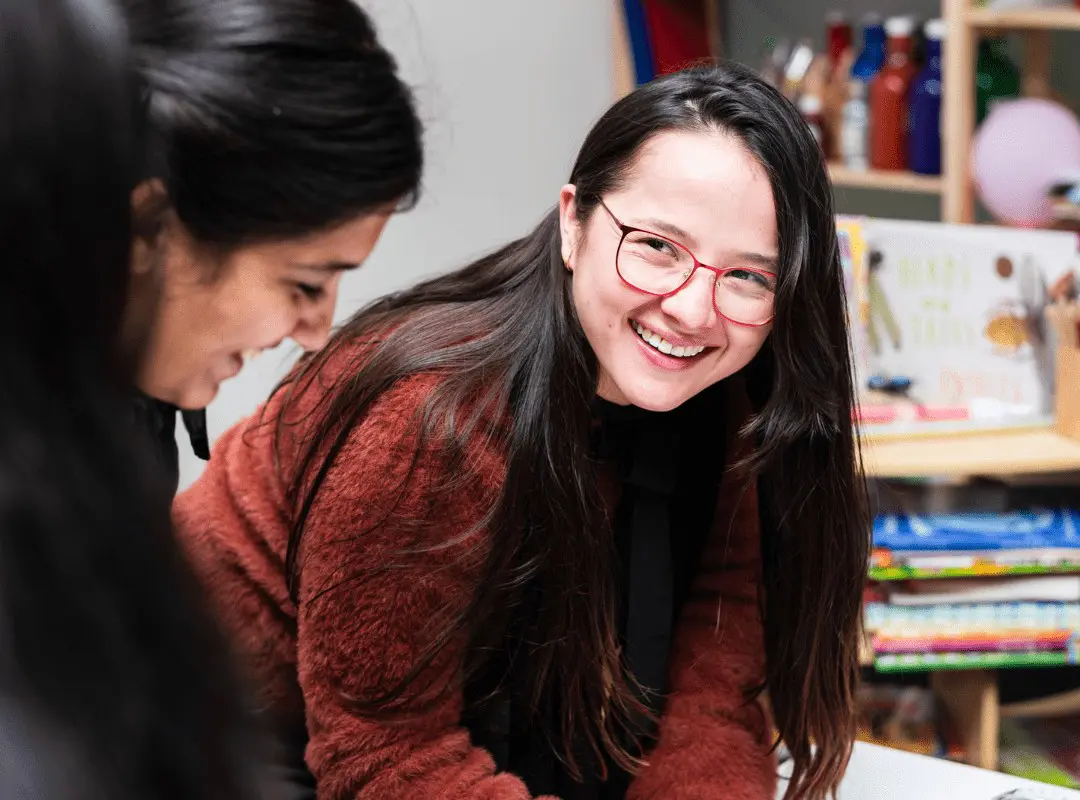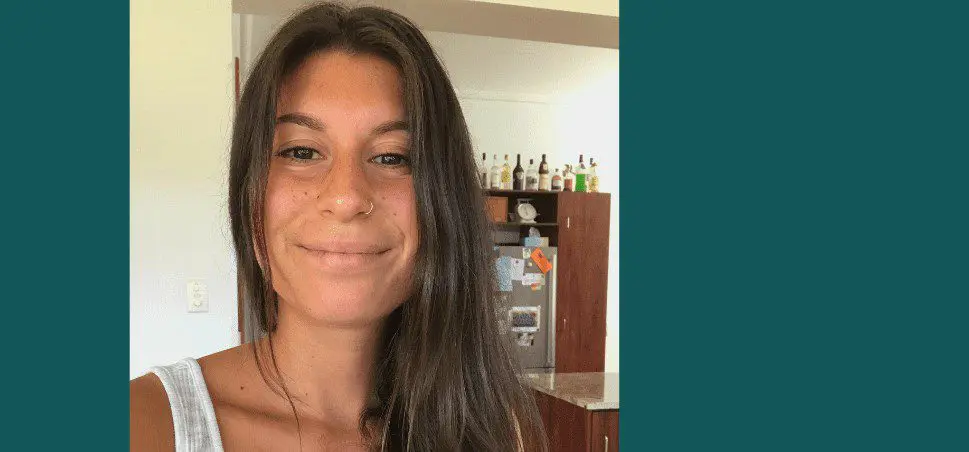Course Overview
The Bachelor of Counselling and Psychotherapy offers a holistic understanding of this field, focusing on treating the ‘whole person’. This unique course equips you with both theoretical knowledge and practical skills, enabling you to start a new career in counselling and psychotherapy or integrate these skills into your current work.
Our teaching approach is integrative and multidisciplinary, and takes into account biological, cultural, sociological, psychological, philosophical, spiritual and psychodynamic factors. What sets us apart is our unique integration of these diverse fields, using scientifically validated processes alongside methods that focus on care for the soul and traditional healing.
At Ikon, we highly value self-development and strive to nurture exceptional practitioners who are also wonderful humans. We understand that being an exceptional counsellor goes beyond theoretical knowledge. Through experiential learning and personal development, you will acquire skills to effectively engage with clients and guide them towards healing. Throughout the course, you will engage in ethical and culturally sensitive practices, and use a range of therapeutic models and techniques including a specialised trauma approach that balances the mind, body, and spirit.
Key Information
| Award | Bachelor of Counselling and Psychotherapy |
| Duration | 3 Year Full Time (or Part Time Equivalent) |
| Study Mode | On Campus Online* |
| Locations | Adelaide (From T2 onwards) Melbourne Sydney Online |
| Intakes | February, May, September |
| Course Fees | Domestic (FEE-HELP available) International |
*International students may study up to one-third of the subjects in a course online. Domestic students may study the full course online.
Trimester 1, 2026 Applications Extended Due To Popular Demand
Career Opportunities
The Bachelor of Counselling and Psychotherapy prepares graduates for an exciting career as counsellors or psychotherapists. You may find opportunities in a diverse range of professional settings including mental health facilities, rehabilitation centres, social service agencies, schools, non-profit organisations and private practice.
Professional Recognition
This course is accredited by the Australian Counselling Association (ACA), the leading industry body for counsellors in Australia. Upon graduation, you’ll be eligible for Level 2 ACA membership, with opportunities to progress in membership levels as you gain professional development and experience. For detailed information, please visit the ACA website.

Course Structure
You must successfully complete 23 subjects, totalling 144 credit points, to complete the Bachelor of Counselling and Psychotherapy. Each subject is designed to provide you with the essential skills and understanding to excel in the field of counselling and psychotherapy.
The course also includes 2 supervised placement experiences totalling 360 hours.
If you plan to study full time, a full-time load is typically 8 subjects per year. For part-time students, you will typically complete 4 subjects per year. Please note that our academic year is structured into three trimesters, each consisting of 11 weeks of teaching followed by an assessment week.
Delivery & Workload
We’ve created a diverse and engaging learning environment for this course. Your study will involve a mix of lectures, skills development workshops, group work, self-directed study and workplace learning. For each subject, allocate about three hours for lectures and tutorials. Additionally, you should allow approximately 10 hours per week, per subject for self-directed study to complete prescribed readings, practice skills, conduct research, and complete assessments at your own pace.
Subjects
Year 1
Year 2
Year 3
Electives
This subject, the first in a developmental sequence of study, sets the foundation for your knowledge and skills in counselling and integrative arts therapy practice. You will be introduced to a comprehensive theoretical framework for your practice encompassing person-centred and experiential psychotherapy, Eastern and Indigenous practices and psychodynamic interpersonal therapy originating in the work of Carl Rogers, Eugene Gendlin and significant humanistic-existential and psychodynamic theorists and practitioners.
Key concepts within this framework, such as the actualising tendency, the significance of developing ‘therapeutic relational depth,’ and the differentiation between the ‘real’ self and the externally constructed ‘false’ self, are examined. Additionally, you’ll explore ‘Dadirri’ deep listening, therapeutic presence, and engagement as foundational elements for your work, while also exploring the differences between the therapeutic relationship with ‘relational depth’ and the ‘therapeutic alliance.’ The ultimate objective is to enable you to integrate experiential relational theory into your practice.
Subject Code: SOC101
Credit Points: 6
Co-Requisite: Integrative Psychotherapy in Practice
The second subject in the developmental sequence of integrative psychotherapy practice focuses on building the essential knowledge and core skills required for counselling and therapeutic practice. Through one-to-one therapeutic interactions with peers, you will share and work with your own ‘lived experience’ in sessions. Using interventions and processes, you will build and strengthen therapeutic relationships and support clients to access and explore inner experiences. You will also apply foundation and intermediate counselling skills in various situations, observe counselling practice interactions and engage in thoughtful reflection on your practice of micro skills in integrative counselling and psychotherapy.
Subject Code: COU102
Credit Points: 6
Co-Requisite: SOC101 Integrative Psychotherapy in Theory
You will develop an understanding of the main theoretical perspectives and models that influence therapeutic practice and facilitate therapeutic change. This covers various approaches such as psychodynamic, humanistic-existential, experiential-emotion-focused therapy, cognitive behavioural, transpersonal and soul centred, post-modern, and integrative schools. You will also learn to recognise major theoretical perspectives, concepts and explanatory frameworks used in counselling and psychotherapy. The different approaches will be examined, including their underlying theory and techniques. The models studied will be contextualised within an integrative conceptualisation framework and you will have opportunities to apply theory in practice through case scenarios.
Subject Code: COU103
Credit Points: 6
This subject is designed to develop your awareness and understanding of the ethical and legal issues critical to counselling and psychotherapy practice. You will learn about ethical principles, theories and frameworks that guide behaviour and decision making, including relevant legislation and professional codes of ethics within the Australian professional landscape. By analysing scenarios, you will identify ethical and legal issues and recommend solutions to common dilemmas in therapeutic practice, such as those related to confidentiality, informed consent, power dynamics and managing professional boundaries. You will also explore how your personal, social and professional values may influence your decisions and actions.
Subject Code: COU104
Credit Points: 6
This subject explores the varied experiences of consumers using mental health services in Australia and assesses the current system’s strengths and weaknesses. It provides an understanding of the cultural evolution of perceptions regarding ‘normal and abnormal behaviour’ over time, as well as the historical emergence of the Diagnostic and Statistical Manual of Mental Disorders (DSM) for diagnosis, including its rationale and criticisms. You will learn to identify key terms and major categories of the current classification systems in psychopathology, while also developing skills to effectively respond to clients in mental health crises and those experiencing suicidal tendencies.
Subject Code: COU105
Credit Points: 6
In this subject, you’ll explore the ethical foundations of individual worldviews which can unconsciously shape prejudices and biases. You will gain the knowledge, skills and awareness required to engage in ethical and culturally mindful therapeutic practices. Through a curriculum focused on culture and diversity, independence, autonomy and philosophy, you will examine the versatility of embedded identities and their influence on beliefs, values and biases, both positive and negative. Awareness of stereotyping, privilege, poverty, racism, ageism, misogyny, homophobia and other forms of oppression will prepare you for addressing the worldviews and challenges of specific client groups.
Additionally, you will explore how minority stress can contribute to trauma, shame, interpersonal difficulties, self-criticism, lack of personal agency, anxiety and depression and how these experiences may influence the therapeutic relationship. You will also develop cross-cultural skills essential for working with diverse populations such as Aboriginal and Torres Strait Islander individuals, families and communities, learning how to approach their therapeutic needs and healing.
Ultimately the subject aims to foster an understanding that ethical behaviour and cultural competence extend beyond having an awareness of individual and cultural differences, embracing a commitment to eliminate unconscious bias and discrimination in therapeutic practice.
Subject Code: SOC106
Credit Points: 6
This subject will introduce you to the practice of case conceptualisation in clinical settings, guiding treatment planning and interventions during your supervised practice in Supervised Practice A. The emphasis will be on short-term treatment planning, helping you to articulate a clear theoretical understanding of the client’s situation, background, challenges, patterns, and distress from various theoretical perspectives and through an integrative approach. You will also learn to develop hypotheses about the client’s reasons for seeking therapy and their underlying needs. The subject focuses on developing treatment plans to facilitate change, encouraging therapists to deeply consider the client’s circumstances. You will be expected to bring your own client data to the workshops, whether obtained during placement or from peer practice.
Subject Code: COU107
Credit Points: 6
Pre-Requisites: All Year 1 subjects
Co-Requisite: COU108 Supervised Practice A
This subject is the first of two professional experience subjects designed to integrate coursework within a supervised work-based setting. It provides you with the first opportunity to apply theoretical and reflective learning to counselling and psychotherapy practice as you complete 120 placement hours at a host organisation.
The placement focuses on providing a combination of information and practical assistance to mental health service users, emphasising the early interactions between the service users, the student therapist, and the service organisation. This includes activities such as welcoming and engaging new clients, conducting intake and assessment, providing information about policies, services, and referrals, listening to client feedback, and when appropriate, leading, assisting or observing individual or group sessions.
For community health and support providers, direct client practice also involves activities such as providing meals or supplies, engaging in informal conversations for mental health and wellbeing check-ups, assisting clients with paperwork and digital processes, offering mentorship and companionship to those needing social support, accompanying individuals to outings/appointments, and facilitating skills-building exercises.
Subject Code: COU108
Credit Points: 6
Hours: 120
Pre-Requisites: All Year 1 subjects
Co-Requisite: COU107 Case Conceptualisation
This subject explores key issues, theories, and methods in developmental psychology and life span development. An interdisciplinary approach is taken to examine life development from both evolutionary and cultural perspectives. By studying themes of evolution, embryology, attachment, and cultural history, you will gain a deeper awareness of life development in relation to nature and nurture. The subject also provides an overview of abnormal development and important human developmental stages.
Subject Code: SOC201
Credit Points: 6
This subject introduces you to core concepts and principles of trauma-informed practice. Different types of trauma will be explored including single instance, multiple exposure and infant attachment trauma. Drawing on theoretical literature on trauma and attachment, you will learn to recognise causal factors, impacts, emotion dysregulation and trauma symptoms across various populations. This includes Indigenous peoples, children and young people, war survivors, refugees, and those affected by violence, floods and bushfires. You will also learn to recognise triggers to re-traumatisation and how to work within a client’s window of tolerance.
Subject Code: COU202
Credit Points: 6
This subject takes a systems perspective to psychotherapy, focusing on how people interact with their environment. It introduces the general systems theory which provides insight into the diverse systems that impact an individual’s wellbeing. The subject also covers the historical and contemporary understanding and use of systems thinking and approaches in psychotherapy. It begins with a broad overview of systems and covers a range of specific systems such as ecosystems, family systems, couple systems and individual psycho-biological systems. Emphasis is placed on developing a solid theoretical understanding, conceptualisation and application of a systems approach to psychotherapy practice and you are encouraged to reflect on your understanding of systems thinking and the influence of your family system on your development and wellbeing.
Subject Code: COU203
Credit Points: 6
Pre-Requisites: SOC101 Integrative Psychotherapy in Theory, COU102 Integrative Psychotherapy in Practice
This subject focuses on the stages and phases of therapeutic practice, integrating core advanced skills into effective integrative therapeutic practice. You will gain the confidence to lead progressive stages within each session and over time, improve your skills in early, mid, and late-phase treatment. Key areas covered include setting treatment goals, identifying and addressing client narratives, themes, patterns, changing perspectives, facilitating insight, modifying metacognitive beliefs, and managing emotional clusters while addressing emotional pain. While the advanced skills covered may exist in specific therapeutic models, this subject does not focus on a specific therapeutic model.
Subject Code: COU204
Credit Points: 6
Pre-Requisite: COU107 Case Conceptualisation
This subject explores the theory and practice of group work in counselling and psychotherapy. You will learn how to lead and engage in support groups, psychoeducation groups and therapeutic and interpersonal development groups within the mental health, wellbeing, and human services sectors. The focus is on facilitating groups, understanding issues that arise in groups, and resolving conflicts and powerplays. You will also develop expertise in recognising and working with group dynamics such as power, conflict, vulnerability, and connection and support. Consideration will be given to group processes, roles of group members, stages of group development, and both implicit and explicit communication in groups. You will be assessed on the attitudes, tasks, and responsibilities of the group work leader. Furthermore, you will integrate the knowledge and skills developed in Integrative Psychotherapy Theory, Integrative Psychotherapy Practice, and Integrative Treatment Skills to facilitate personal change for group work participants. Classes will be a combination of lecture and interpersonal training group sessions to connect theory to real-world application and reflective and deliberate practice.
Subject Code: COU205
Credit Points: 6
Elective 1
See the ‘Electives’ tab for current elective options available.
See the ‘Electives’ tab for current elective options available.
This subject will help you to develop a sound understanding of clinical processes involved in addressing grief, loss and bereavement in psychotherapy. You will acquire skills, knowledge and an understanding of suitable interventions to help people deal with various aspects of grief and loss including complicated grief, childhood bereavement and continued bonds. You will also learn to map and present a ‘loss history graph’ based on your lived experiences.
The subject will also focus on the cultural, sociological, and ethical aspects of working with these themes. The learning experience will involve interactive face-to-face delivery within a flipped classroom approach.
Subject Code: COU207
Credit Points: 6
This subject explores core concepts and practices focused on self perception, agency, autonomy, identity and narrative within psychotherapy. Using an interdisciplinary approach, you will learn how these critical aspects of human experience can be applied in a clinical setting. This subject is structured in two distinct phases. The first phase is theory-based and draws from the philosophy of mind, neuroscience, neuro-psycho-pathological studies and cognitive science. The second phase connects these theories into clinical practice, integrating them with narrative therapy and mentalisation-based psychotherapy. You will participate in skills-based practice sessions during class where you are required to apply these approaches to demonstrate your metacognitive and mentalisation skills.
The subject is delivered in a format that comprises tutorials, practical sessions and reflecting on classwork. The assigned readings will help you to actively contribute to class discussions, practice and develop your skills.
Subject Code: COU208
Credit Points: 6
Pre-Requisites: COU202 Trauma Informed Practice, COU204 Integrative Treatment Skills
This subject provides an introduction to psychodynamic psychotherapy using the evidence-based approach of psychodynamic-interpersonal therapy. You will learn about the theoretical concepts, principles, and core competencies of the conversational model. You will develop both theoretical knowledge and skills in assessment, case formulation and therapeutic intervention planning using this approach. You will also critically evaluate your use of psychodynamic interpersonal therapy in supervised practice sessions.
Subject Code: COU301
Credit Points: 6
Pre-Requisites: All Year 2 core subjects.
This subject supports students to develop ethical, reflexive, and culturally responsive practices when working with Aboriginal and Torres Strait Islander clients. Through experiential learning, critical self-inquiry, narrative and creative processes, students will engage with Australia’s colonial history, Indigenous worldviews and key cultural protocols. Grounded in the values of respect, safety, communication, reflection, advocacy and cultural responsiveness, this subject aims to challenge unconscious bias and equip students with the tools to navigate ethical dilemmas in the provision of trauma-informed care in cross-cultural therapeutic contexts. Through critical discussion and case studies, students will develop a deeper understanding of relationality, Country, Aboriginal and Torres Strait Islander social and emotional wellbeing, the principles and practices for decolonising therapy aligned with their professional context, and the responsibility of the helping professions in supporting healing and justice.
Subject Code: SOC312
Credit Points: 6
See the ‘Electives’ tab for current elective options available.
This subject introduces focusing-oriented psychotherapy, an experiential therapeutic process based on research into effective therapy methods. Studies have shown the importance of clients’ in-session inner processing during therapy.
You will gain hands-on experience in understanding how this process taps into human resources such as inner knowing, inner experience, felt-sense, insight, problem solving and self-realisation. You will learn to facilitate client inner processing and the resulting changes in states of consciousness. As a trainee therapist, you will develop and hold the’ focusing attitude’ and use ‘presence language’. You will also learn to track the client’s inner process and apply the stages of experiential focusing to allow deep experiential processing. Additionally, emphasis will be placed on facilitating a compassionate relationship with your current emotional experiences.
Subject Code: COU304
Credit Points: 6
This subject builds on Trauma Informed Practice to extend your understanding of the theories and practices in the emerging area of trauma-focused and somatic-informed psychotherapy. You will learn about the neurobiology of trauma and its impact on the brain leading to bodily symptoms, reactions and memory issues. There is a focus on multiphasic treatment approaches and the necessary skills for each phase of trauma treatment and practice. You will learn to create an integrative approach to trauma treatment that combines ‘bottom-up’ approaches such as sensory motor processing and somatic experiencing, as well as ‘top-down’ approaches such as mentalisation. Using a phenomenological approach, you will gain a thorough understanding of the inner experience of trauma for specific populations.
Subject Code: COU305
Credit Points: 6
Pre-Requisites: COU202Trauma Informed Practice, COU301 Psychodynamic Interpersonal Therapy
This subject explores the issues of knowledge, research, and self within psychotherapy practice. It examines the foundational questions of ontology and explores epistemic implications for research practice. We aim to develop your critical skills for understanding research practices and methods and support you in developing skills in conducting literature reviews and establishing sound research questions. The subject concludes with an exploration of the self and the role of wisdom, setting the foundation for your life-long pursuit of wisdom.
Subject Code: COU306
Credit Points: 6
This final placement subject utilises an integrated approach to skill development designed to draw together theory, knowledge and skills in coursework in a safe, supported and supervised work-based setting.
As the capstone experience, students will carry a small client case under supervision as part of a 240-hour placement experience. Students will work collaboratively with clients to plan and facilitate positive change with consideration for the needs, goals and diversity of the individual, group or community.
Students will brief clients, assess presenting issues, complete case conceptualisations and draw on theoretical knowledge to plan appropriate interventions. In doing so, students will exercise their clinical judgement, ethical thinking and decision-making skills to engage in ethical and culturally sensitive therapeutic practices with a focus on therapeutic relationships, client presentations, case conceptualisation, and working as part of a multidisciplinary team. Students will refine their professional identity through the integration of theory and practice, supervision, and critical reflective practice, and use this learning to articulate a philosophy of practice as a graduate practitioner.
Subject Code: COU307
Credit Points: 12
Hours: 240
Pre-Requisites: All Year 1 subjects, and all Year 2 and Year 3 core subjects.
This subject explores the integration of movement into multimodal arts practice. You will explore the historical and philosophical foundations of societal perceptions of the body and their current implications. Fundamental concepts of body-psychotherapy and movement-based therapies will be part of your learning. You will gain hands-on experience with movement-based interventions, integrate them into psychotherapeutic and arts-therapeutic settings, and examine the ethical considerations involved with these interventions.
Subject Code: COUE201
Credit Points: 6
This subject explores the historical development of using various sand and miniatures for expressive purposes, providing insight into symbolic thinking and meaning making, mythology, archetypes and complexes and the therapeutic progression of Jungian psychology. In preparation for working with children in a Jungian way, you will become familiar with Erich Neumann’s child developmental stages and examine case material of child sandplay to observe and analyse Neumann’s stages in the sand. You will learn how to facilitate an adult sand and symbol process by experientially engaging with the sand, water, and figurines, examining the case material of adult sandplay, and exploring the archetypal meaning of symbols. Creating four sand trays in a ‘safe and protected space,’ you will have the opportunity to connect with emotional experiences and life narratives through the sand pictures. You will also learn to engage with six levels of reflection from empathic to transcendent (Carroll & Gilbert, 2011, p.115) as a structure for evaluating your clinical work.
Subject Code: SOCE202
Credit Points: 6
This subject equips you with the skills to integrate ecopsychotherapy into your practice by linking human psychological wellness to the ecological system. Through an experiential retreat in a natural setting, you will receive training in ecopsychotherapy techniques and theoretical frameworks, including mindfulness practices, Indigenous wisdom, and depth psychology. This retreat focuses on reconnecting with nature and addresses fundamental issues such as safety, confidentiality, and the need to acknowledge the traditional peoples of the lands where the retreats are held.
Ecopsychotherapy acts as a means to dissolve the perceived separation between individuals and nature, offering exercises to facilitate reconnection to the natural world. The subject also highlights the post-colonial need to acknowledge the traditional peoples of the retreat lands and engage in reciprocal relationships with Aboriginal Australians, including the importance of respecting Elders and Traditional Owners past, present and emerging. Your success in this subject will be determined by your motivation to engage with the core concepts of ecopsychotherapy practice.
Please note: Due to the delivery style for this subject, extra costs may be incurred to cover travel, accommodation and food.
Subject Code: SOCE203
Credit Points: 6
This subject focuses on the knowledge and skills required to apply therapeutic skills to work with young people (12-24 years).
Students will build on their understanding of key theories and models of child and adolescent development, attending to common issues facing young people in contemporary society. Students explore evidence-based strategies for engaging and working with young people in diverse therapeutic contexts. A systems perspective is applied to the assessment of young people’s circumstances and to the adaptation of approaches in response to the developmental, familial, organisational, community, and socio-cultural contexts shaping young people’s lives.
Students will practice, develop, and critically reflect on skills in relationship and rapport building and culturally responsive therapeutic approaches with young people. This includes examination of how resources and physical environment can be employed to enhance engagement and practice. Emphasis is also placed on the personal and professional competencies required to work effectively in response to relevant legislation; confidentiality; informed assent/consent; and duty of care with young people under the age of 18. Students also learn about strategies to engage families, parents, caregivers, schools, and other service providers in the therapeutic process.
Subject Code: COUE301
Credit Points: 6
This subject aims to deepen your understanding of the science and research behind dream work and the resources of the human psyche that produce dreams. It looks at how the dreaming function can use internal resources to address problem-solving, stress management, knowledge and understanding, change management and psychological development. The subject explores experiences in dreaming, liminal, conscious imaging, and metaphoric states of consciousness. You will also learn to use various methods, including Jungian and archetypal processes, in both individual and group settings, to tap into these states of consciousness. These methods are developed as part of your integrative symbol and dreamwork skillset.
Subject Code: SOCE302
Credit Points: 6
This subject explores the themes of personal growth and awakening. It follows an intensive format with a structured program involving personal reflection, practice and lectures, exploring themes related to the organisation of the mind. You will begin learning about early developmental factors in mind formation, and progress towards transpersonal psychology and Eastern philosophies and practices.
Subject Code: SOCE303
Credit Points: 6

Recognition of Prior Learning
At Ikon, your past studies or work experience can be acknowledged through Recognition of Prior Learning (RPL) or Credit Transfer.
RPL evaluates your previous skills and experience against the learning outcomes of Ikon subjects, potentially exempting you from studying certain subjects. Credit Transfer allows your previous studies to contribute towards your qualification, granting credits based on matched content and learning outcomes between equivalent qualifications. These pathways could help you to fast track your qualification, reducing study time and tuition fees.
Study Pathways
Credit Pathways
Our Diploma of Counselling and Psychotherapy graduates can advance directly into the second year of our Bachelor of Counselling and Psychotherapy. Eligible applicants will be guaranteed 48 credit points out of a total of 144 points for our Bachelor of Counselling and Psychotherapy.
Exit Pathways
After successfully completing the first year of the Bachelor of Counselling and Psychotherapy, you may choose to leave the course and exit with the award of Diploma of Counselling and Psychotherapy. Similarly, if you successfully complete two years of the Bachelor of Counselling and Psychotherapy and decide to not continue your degree studies, you may exit with the award of Associate Degree of Counselling and Psychotherapy.

Entry Requirements
We welcome students from all circumstances and academic backgrounds to apply for this course. Choose the admission pathway that is most relevant to your educational background.
Domestic Students
International Students
Our entry pathways include:
- Recent Senior Secondary Education: This applies to those who have completed an Australian Senior Secondary Certificate (Year 12) or its equivalent within the past two years. For guaranteed entry, an ATAR of 65 is required.
- Applicants with Higher Education (HE) study must have undertaken a higher education qualification (or, partially completed a higher education qualification).
- Vocational Education and Training (VET) study: This requires completion of a vocational qualification at Diploma level or higher.
- Work/Life experience: If you have left senior secondary education more than two years prior to your application and have not undertaken VET or higher education study since then, you may be eligible based on your professional or work experience and/or any non-formal courses taken in preparation for tertiary study or relevant to the subject area. You must also submit a written admission statement outlining your reasons for pursuing the Bachelor of Counselling and Psychotherapy. For more information about writing your admissions statement, click here.
All applicants must complete the Learner Questionnaire found in the Application Form, demonstrating their inherent qualities and motivations to succeed in the course. You may also be asked to participate in an informal interview with an Ikon representative.
To discuss the most suitable pathway for your circumstances, please contact us at 1300 613 801 Domestic: Ext 1, or email us on [email protected].
For more information, please refer to the following:
Student Profile
Application Process
Student Admission Policy
Inherent Requirements
International applicants must meet both the academic and English language requirements to enter this course.
Academic entry requirements
Our academic entry pathways include:
- Recent Senior Secondary Education: This applies to those who have completed an Australian Senior Secondary Certificate (Year 12) or its equivalent within the past two years. For guaranteed entry, an ATAR of 65 is required.
- Applicants with Higher Education (HE) study must have undertaken a higher education qualification (or, partially completed a higher education qualification).
- Vocational Education and Training (VET) study: This requires completion of a vocational qualification at Diploma level or higher.
- Work/Life experience: If you have left senior secondary education more than two years prior to your application and have not undertaken VET or higher education study since then, you may be eligible based on your professional or work experience and/or any non-formal courses taken in preparation for tertiary study or relevant to the subject area. You must also submit a written admission statement outlining your reasons for pursuing the Diploma of Counselling and Psychotherapy. For more information about writing your admissions statement, click here.
All applicants must complete the Learner Questionnaire found in the Application Form, demonstrating their inherent qualities and motivations to succeed in the course. You may also be asked to participate in an informal interview with an Ikon representative.
English language requirements
Applicants must demonstrate a sufficient level of English language proficiency. You should have an IELTS score of 6.5 (Academic) with no less than 6.5 in Speaking and no less than 6.0 in Listening, Writing, and Reading, or equivalent.
To discuss the best pathway for your circumstances, please contact us at [email protected]u
For more information, please refer to the following:
Application Process
Student Admissions Policy
Inherent Requirements
Find Out More!
Complete the form below to download our course brochure and find out more about the Bachelor of Counselling and Psychotherapy.


